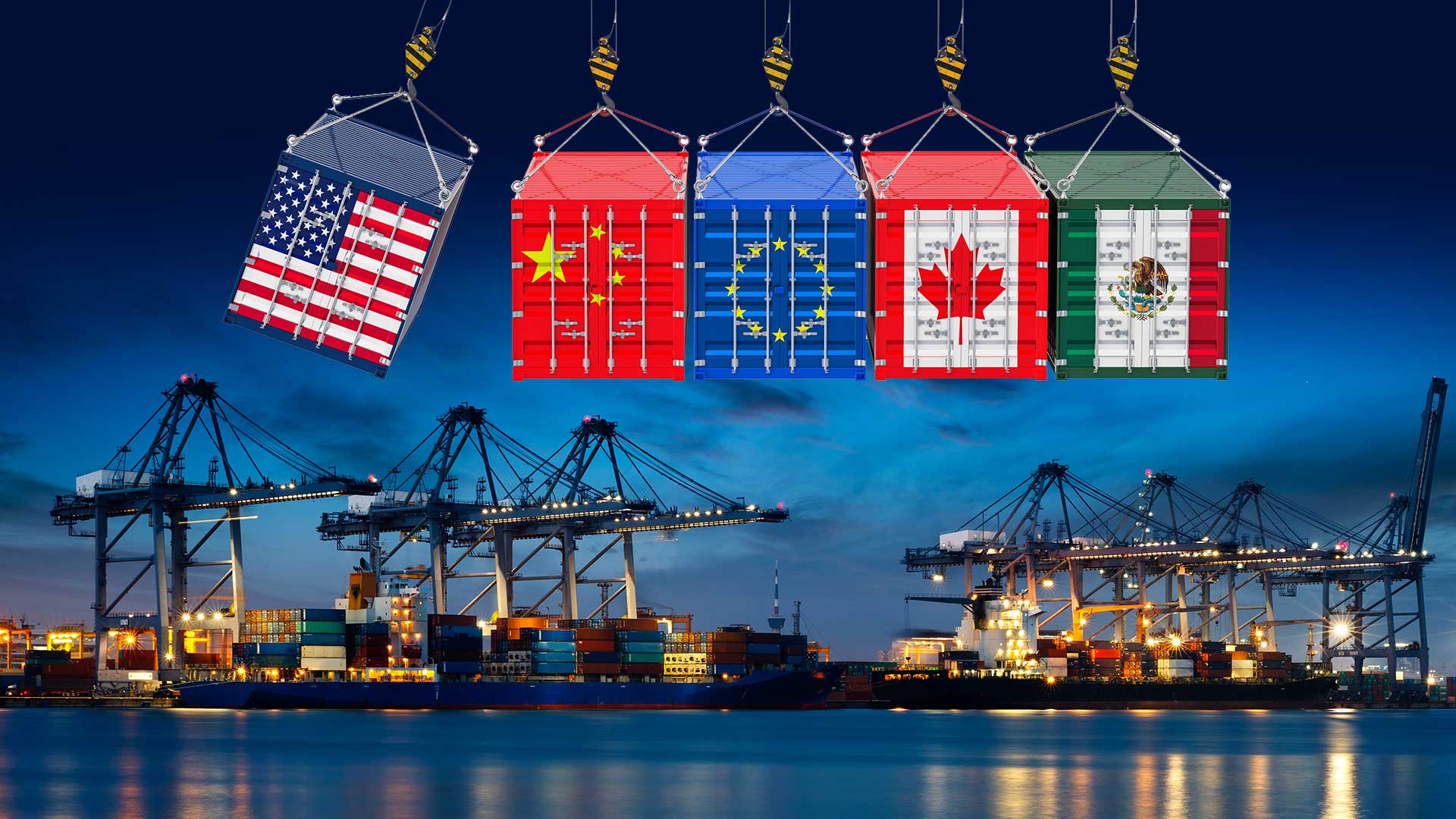Trump's Trade War With Europe: Understanding The Reasons Behind The Outburst

Table of Contents
Addressing the US Trade Deficit with Europe
A significant focus of Trump's trade complaints was the persistent US trade deficit with the European Union. He argued this imbalance demonstrated unfair trade practices by the EU, a key element fueling his trade war with Europe.
-
The Scale of the Deficit: The US trade deficit with the EU consistently reached hundreds of billions of dollars annually during the Trump presidency. This substantial figure fueled the narrative of unfair trade.
-
Understanding Trade Deficits: A trade deficit occurs when a country imports more goods and services than it exports. While some economists argue that a trade deficit is inherently negative, others contend that it can reflect a strong domestic economy with high consumer demand.
-
Differing Viewpoints: The Trump administration viewed the trade deficit as a sign of unfair trade practices by the EU, demanding immediate action. Conversely, economists with opposing viewpoints emphasized the complexities of international trade and questioned the direct link between trade deficits and unfair practices.
-
Key Deficit Sectors: The automotive industry played a major role in the US trade deficit with Europe. High import volumes of European cars and auto parts contributed significantly to this imbalance. This sectoral imbalance further fueled the narrative of unfair competition.
Allegations of Unfair Trade Practices by the EU
The Trump administration frequently accused the EU of employing protectionist measures and unfair subsidies that harmed American businesses, a significant catalyst in the trade war with Europe.
-
Specific Allegations: These accusations included high tariffs on agricultural products from the US, making it harder for American farmers to compete in the European market, and regulatory barriers that restricted access for American goods to the European Union.
-
Evidence and Counterarguments: While the Trump administration cited specific instances of EU tariffs and regulations as evidence of unfair trade, the EU countered by arguing that these measures were justified based on their own trade policies and regulations.
-
EU Perspective: The EU maintained that its trade practices were consistent with international norms, and it refuted accusations of deliberate protectionism. They argued that the US itself employed a variety of trade barriers and subsidies.
-
Impact on US Industries: The alleged unfair trade practices by the EU, according to the Trump administration, negatively impacted various US industries, particularly agriculture and manufacturing. This fueled the political push for retaliatory tariffs.
National Security Concerns and Strategic Industries
National security concerns, particularly regarding strategically important industries like steel and aluminum, played a significant role in Trump's trade actions. This was a major contributing factor in escalating the trade war with Europe.
-
National Security Argument: The Trump administration argued that certain imports from Europe, particularly steel and aluminum, posed a threat to US national security. This justification allowed them to circumvent traditional trade dispute mechanisms.
-
Section 232 Justification: The administration invoked Section 232 of the Trade Expansion Act of 1962, which allows the president to impose tariffs on imports that threaten national security. This controversial use of Section 232 was heavily criticized by trade experts.
-
Economic Impact of Tariffs: The tariffs on steel and aluminum imposed by the Trump administration had significant economic repercussions, impacting both European and US industries involved in the production and consumption of these materials. This had ripple effects across the broader economy.
-
Critiques of the National Security Justification: Critics argued that the national security justification was overly broad and could be used to justify protectionist measures in any sector. They argued the economic damage outweighed any security benefits.
The Role of Domestic Politics and Populism
Trump's trade policies were also significantly influenced by domestic political considerations and populist rhetoric, further complicating the trade war with Europe.
-
Appealing to the Base: Protectionist trade policies resonated with a significant segment of Trump's voter base, who felt negatively affected by globalization and foreign competition. This provided political capital for aggressive trade action.
-
Trade Disputes as a Political Tool: Trump used trade disputes, including the trade war with Europe, as a tool to demonstrate his commitment to protecting American workers and industries, strengthening his political standing.
-
Influence of Lobbying Groups: Domestic lobbying groups representing specific industries played a significant role in shaping the Trump administration's trade policy agenda. The voices of these groups influenced the intensity and direction of the trade war.
Conclusion
Trump's trade war with Europe was a multifaceted event, driven by a complex interplay of economic grievances, accusations of unfair trade practices, national security concerns, and domestic political strategies. Understanding the motivations requires a nuanced perspective that acknowledges arguments from both the Trump administration and the EU. To further your understanding of this critical period in global trade relations, continue researching the impacts of Trump's trade war with Europe and its lasting consequences on the global economy. Further exploration of the lasting effects of this trade dispute is crucial to understanding the current state of global trade relations.

Featured Posts
-
 Rtx 5060s Disappointing Launch Implications For The Future Of Graphics Cards
May 25, 2025
Rtx 5060s Disappointing Launch Implications For The Future Of Graphics Cards
May 25, 2025 -
 Hawaii Keikis Memorial Day Lei Making Poster Contest Showcasing Artistic Talent
May 25, 2025
Hawaii Keikis Memorial Day Lei Making Poster Contest Showcasing Artistic Talent
May 25, 2025 -
 Alexandria International Airport And England Airpark Launching The Ae Xplore Campaign For Local And Global Travel
May 25, 2025
Alexandria International Airport And England Airpark Launching The Ae Xplore Campaign For Local And Global Travel
May 25, 2025 -
 Fotografiyi Naomi Kempbell Z Yiyi 55 Richchya
May 25, 2025
Fotografiyi Naomi Kempbell Z Yiyi 55 Richchya
May 25, 2025 -
 Nvidias Rtx 5060 Launch A Warning For Gamers And Tech Reviewers
May 25, 2025
Nvidias Rtx 5060 Launch A Warning For Gamers And Tech Reviewers
May 25, 2025
